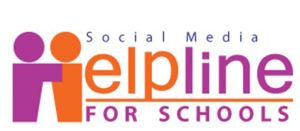Struggling with a good teen making bad choices can be frustrating especially when it escalates beyond typical teen behavior — you find you have lost control and authority over your teenager. After exhausting local resources, you find yourself online searching for schools for troubled teens and realize you have so many questions — there are 7 common questions parents typically ask about therapeutic schools.
First you are bombarded with websites, marketing and new terminology that can be confusing and overwhelming especially when you are stressed out and exhausted by your teen’s behavior.
After decades of helping families that are searching for the right behavioral boarding school for their struggling teen or young adult, we complied the top 7 most frequestly asked questions and answers by parents.
7 Questions Parents Ask About Placing Their Teen in Troubled Youth Programs:
1. “Should our teen help us choose the therapeutic boarding program?”
Absolutely, positively not. Up until this point of their life, they have not been making the best choices, what would convince you that they would make the right one now?
Again, with decades of experience, parents have attempted to work with their teens in hopes they would be excited about a school or a program, getting a new start – or possibly the animals or sports that the program offers, however what happens next can be anything but excitement.
Your child will start doing their own research online, telling their friends, and realizing they will not be able to take their phones, talk to friends, they will be on a schedule and life will not be the rainbows and unicorns they have been used to. In some situations, they might even miss holidays or birthdays.
If your teen is a flight risk, you are giving them time to better map out their surroundings by telling them where they will be going – or even where you are considering sending them. It is never wise for a parent to threaten a child that they will be sent away, this only starts the program off with a sense of negativity.
It is the child’s behavior that has prompted you to make this decision, no parent simply wants to send a child to residential for no reason. Every parent has their child’s wellness in the forefront.
This is a time for parents to be the parents, make the adult decision for the child that needs help. If you are placing a young adult, it is different. At 18+ years old they do have to be willing to attend. In most of these young adults’ programs your child can speak with the director and other students and get a full understanding of the program. Some young adults know they need this extra boost.
2. “My teen won’t attend a program; how do we get him/her there?”
This is probably one of the most common questions parents ask and are concerned about. Assisted transport is how most parents have successfully and safely brought their teen to residential treatment.
It is especially important to choose qualified and credentialed professionals. The transport service should be licensed and insured to transport teens and have various degrees and/or background in education, psychology, behavioral science, mental health, or other related fields.
It is natural for parents to be apprehensive about this, however after speaking with other parents that have taken this road, you will realize that many of these teens ended up becoming friends with their transports and it is not the nightmare they are imagining. They may initially be angry, but deep down your teen understands they do need help.
3. “I fear my teen will hate me forever if I send them to a therapeutic boarding school.”
Again, another quite common concern of parents, especially parents of adopted children that fear that they will exasperate abandonment issues, is will their teen hate them forever if they are sent to a therapeutic boarding school?
Initially your teen may enter the program and not like you very much (it may feel like hate to you and them) but — they will grow from their fear and anger.
Your teen will likely fear the new situation and may also promise to “do better at home” however you know that you have already heard all these promises and spent a long time trying. It is time to be the adult, be the parent and do what is best for your child.
It is at this time that talking to other parents can be incredibly supportive for you — parents that have taken this journey before you, maybe from the same program you have selected for your teen.
As the program progresses, family therapy and workshops continue to reunite all of you and work through the conflict that tore you apart. Eventually your teen will be able to understand and have gratitude for this experience.
4. “My teen is very smart; will he/she fall behind academically?”
When these teens enter boarding schools for troubled teens, most of them were A, B students and are now underachieving or barely attending classes. Many parents were dealing with school refusal, the simple act of getting out of bed to attend school was impossible.
Therapeutic settings first and foremost get your teen back on track emotionally, but they will also be working on your teenager’s academics.
Now that your teen is in a structured and consistence environment, they become more focused and start feeling good about themselves, which helps them to improve academically – either to get caught up or surpass where they were at their school at home.
5. “Don’t these programs have bad kids; my child isn’t that bad?”
If no one had troubled teens or young adults, there would not be any need residential treatment facilities. Most schools for troubled teens are enrolled with good kids that come from good families, possibly had a good foundation, however, took a wrong turn.
The increase of technology has not helped this generation, screen-addiction, social media – they are not only facing peer pressure at school, but it is also in the palm of their hands 24/7/365.
Doing your due diligence in researching boarding schools helps you to be sure you are placing your teen in the most appropriate setting. Your teen will be with kids like themselves – and their families are like you, begging for help to get their child back to happiness and a functioning adult.
6. Are these programs only for the wealthy people?
The sticker shock of places to send troubled teens can make some parents feel hopeless – however there are financial options, and we also discuss using your medical insurance as much as you are able to.
There are educational loans available for all people, like college loans, parents must qualify for them. Some parents will take a line-of-credit on their home if that is an option, and others may turn to relatives for a loan or gift monies.
There are resources through organizations like The United Way that has free programs, however the hurdle is the child usually needs to be willing to attend.
As far as scholarship programs, when you interview a program, you can ask they if they have any available. It would likely be a reduction in tuition rather than a scholarship. It never hurts to ask.
7. What happens when my child comes home (graduates the program)?
It is normal for parents to be worried about their teen coming home, however this journey has involved the entire family. During this time there has been trial runs with home visits, family therapy, a transitional home plan that has been prepared and discussed many times for everyone to fully understand. Another words, you are not alone in this process either.
Some core components of an aftercare plan:
1. Family engagement. It is imperative that family involvement does not stop because the program ended. Set-up a routine to regularly check-in with each other, such as breakfast, dinner or driving your teen to school or their activities. Stay interested and involved in their daily lives and especially their digital ones.
2. Therapeutic support. Before your teen leaves treatment, have a therapeutic support plan in place that is part of coming home. This can include a therapist, school counselor and if your child requires ongoing medication, possibly a psychiatrist. The first appointments should be arranged for when they get home. You may also want to consider a mentor or teen coach.
3. Back to school. Another particularly important part of the transitional plan is to determine your teen’s educational path. Will they go back to their same school or switch schools (if so, have you enrolled him/her already) or have you signed them up for virtual schooling? (Do not panic, these are all issues that are thoroughly discussed in your transitional home plan with the program therapist and staff that know your child’s needs) prior leaving the school.
4. Consistent structure. Helping your teen maintain a balanced and consistent daily schedule with their daily life — such as school and their activities is imperative. This includes sleep patterns, recreational hobbies (sports, dance, etc.), exercise, limited screen-time, jobs, social life, and other areas in life, will lead them to a healthier lifestyle at home.
5. Relapse plan. No one is perfect, there will be bumps, but the positive side is the likely will not be as bad as it was before. Your teen has learned coping skills (and so has the parents), it is likely they will be angrier at themselves for slipping up. Be prepared by having your boundaries and consequences outlined in your home plan. If drugs or alcohol were involved prior your teen’s treatment, create a plan to avoid the people, places and moods that accompany the substance use.
Bonus tip: Most of these teens entered treatment with the love of their cellphone or video gaming. During the transitional plan, it is time to create your technology agreement for the entire family.
Also read:
How to Interview Schools for Troubled Teens.












